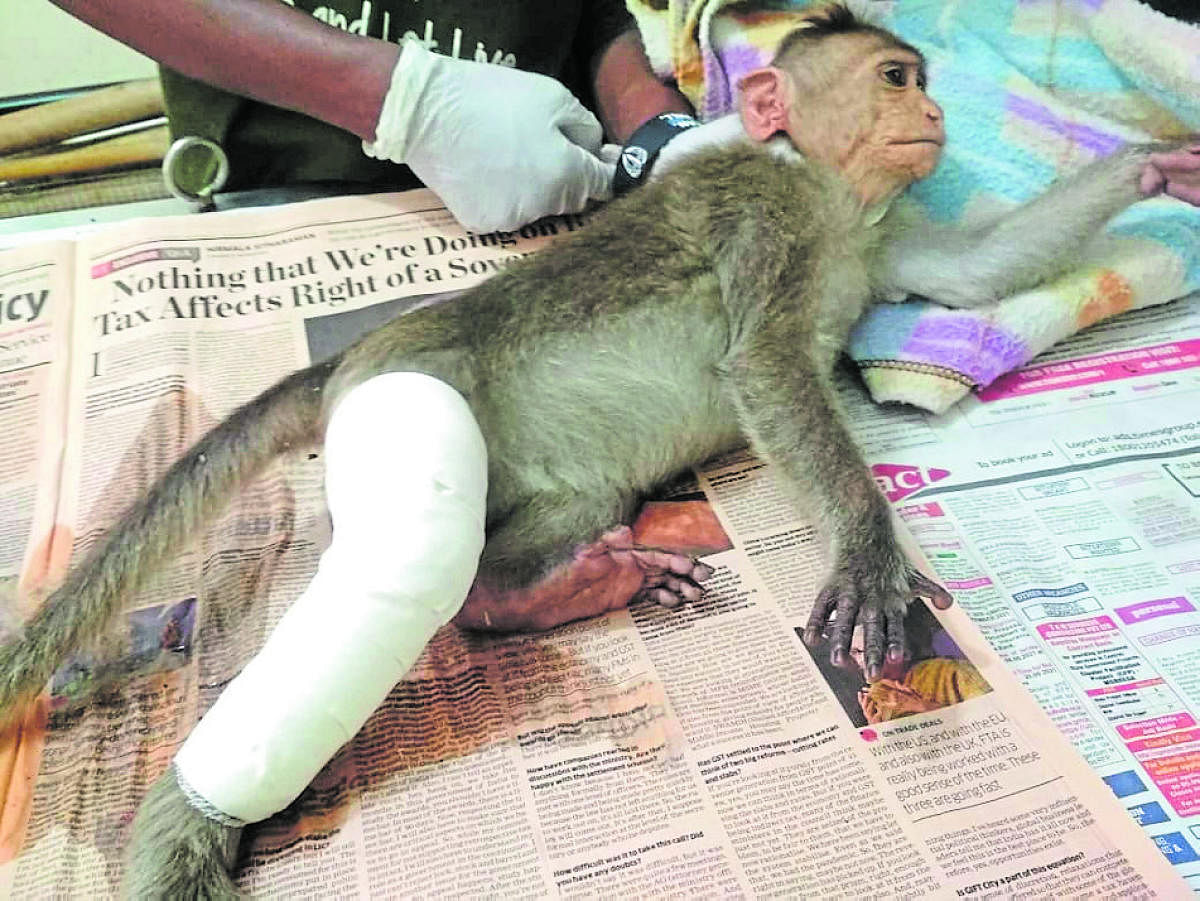
Many in Bengaluru are asking the authorities to relocate monkeys frequenting their neighbourhoods. Wildlife veterinarians and conservationists say citizens should learn about monkey habitats and behaviour, and stop feeding them.
People living in areas such as Bannerghatta and Hennur are complaining that monkeys get aggressive, sometimes entering their homes and snatching food.
Macaques are social monkeys and are capable of surviving within the boundaries of human habitat, says Yashas Bharadwaj, wildlife conservationist and part of Swift Wildlife Action Team (SWAT).
“One of the main reasons they are attracted to human land is because they are now more inclined towards commercial crops than native food, and it is us who introduced them to all that,” he says.
If you do not want to be bothered by monkeys, stop feeding them, says Yashas.
“When you feed them what you have, the presence of artificial flavours and amino acids not only imbalance their diet but also get them to stay where they are in the hope that you might feed them again,” he says.
Macaques cannot remember faces. So once you give them food, they assume the next person they see is you and expect to be fed again.
When they are refused food, they can create a nuisance, he explains. “This is one of the major conflicts we are facing today,” he told.
People need not feel guilty. “Just because you stop feeding them does not mean they are going to die. Monkeys are nomads. They go in search of sources and will survive,” he concludes.
Relocation dangers
Monkeys are not migrating to the city, rather, we have grown into their environment, says Roopa Satish, wildlife veterinarian, Wildlife Rescue and Rehabilitation Centre (WRRC).
“Monkeys which live in a particular area for generations, in the city or the forest, will continue living there until they become extinct,” she says.
She is witnessing at least 10 monkey deaths a week, and believes this is alarming from a monkey survival perspective.
According to the Wildlife Protection Act of 1972, relocating wildlife is illegal as it could potentially kill the animals, she says. “Firstly, the forest monkeys have their own community and they do not welcome outsiders. So, when you try to relocate city macaques in the forest, the native macaques see them as a threat and end up chasing or hurting them,” she explains.
Also, people living in the villages adjoining the forests are against the idea as the animals could destroy their crops and disturb their peace, she says.
P S Anand Nair, security manager and rehabilitator, WRRC, says his team is rescuing about 15 monkeys a
month.
“We mostly rescue injured monkeys. The most common reasons for injuries are electrocution, dog bites, and road and fall accidents,” he says.
Since the pandemic broke out, road accidents had significantly decreased, but since the vehicles are back, the numbers are going up again.
Relocating is a headache, he admits. “I have treated so many injured monkeys but once they recover, we don’t know where to leave them. Ideally, we need to drop them where they were found. If that happens, there is a high chance that they will injure themselves again. So we just drop them off on the outskirts of Bengaluru and hope they survive,” he adds.
Dos and Don’ts
Don’t use objects to shoo monkeys away.
Don’t make faces at them. Avoid interaction.
Feed them indirectly by planting trees.
Request relocation only in case of emergency or injury.
Areas frequented by monkeys
Whitefield
Hennur
RR Nagar
South Bengaluru